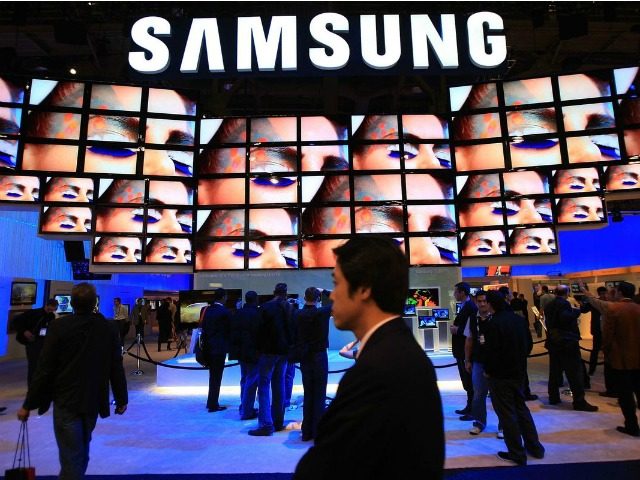A sealed indictment in South Korea, revealed to the public for the first time by Reuters on Tuesday, accuses former Samsung executive Choi Jinseog of stealing company secrets from his old employer so he could help Taiwan-based Foxconn build a chip factory in China.
South Korean prosecutors announced the indictment on June 12, but without naming Choi or providing many details of the case. South Korean media deduced the identity of the defendant fairly quickly and the unreleased indictment confirmed their guess.
Choi was arrested in May and is jailed awaiting trial, which is scheduled to begin on July 12. He has denied all of the charges against him.
The public announcement made by the Suwon District prosecutor’s office on June 12 accused an unidentified 65-year-old of unlawfully obtaining Samsung blueprints for a chip factory and its associated systems, including the “clean rooms” that allow the incredibly fragile and environmentally-sensitive semiconductor chips to be handled during the manufacturing process without introducing defects.
Samsung, the world’s largest manufacturer of computer memory chips, has developed highly sophisticated manufacturing processes and clean room technology, at tremendous expense. According to prosecutors, an “undisputed top [South Korean] domestic expert in semiconductor manufacturing” with 18 years of experience at Samsung worked with six accomplices to steal $233 million worth of Samsung designs from 2018 to 2019, in an unsuccessful attempt to replicate the company’s chipmaking process at a factory in the Chinese city of Xi’an. The project was funded by Chinese municipal authorities and an unnamed Taiwanese company.
The prosecution said the suspect’s activities would have “irreversibly damaged” South Korea’s semiconductor industry if the attempt to copy a Samsung factory in China was successful. The indictment described the crime as perhaps the worst case of intellectual property theft in South Korea’s history.
Adding insult to injury, Samsung already operates a semiconductor plant in Xi’an. The illegally engineered duplicate would have been located only a mile away. Samsung’s plants in China are currently operating under a waiver granted by the United States that otherwise bans exporting chip technology to China. The future of these factories is uncertain if the waiver is not renewed in October 2023.
The case had significant political ramifications because in May the Chinese government banned imported memory chips from U.S. manufacturer Micron Technology Inc. The Biden administration reportedly pressured South Korean chipmakers not to step in and replace the imports China lost by banning the American products.
The indictment viewed by Reuters confirmed several details that had already been worked out by reporters. Choi’s long career at Samsung was followed by a decade-long stint at another big South Korean chipmaker, SK Hynix. He then established his own consulting firm in Singapore, Jin Semiconductor, and set about poaching some two hundred employees from Samsung, Hynix, and various affiliates.
Some of those poached employees allegedly helped Choi smuggle out the confidential information needed to replicate the Samsung chip factory. The sealed indictment revealed that the Taiwanese company invested in the project was Foxconn, a major supplier for Apple that operates huge factories in China. Jin Semiconductor signed a contract with Foxconn in 2018 to build a new chip factory in Xi’an.
Choi’s lawyer Kim Pilsung scoffed at the charges, insisting the designs Jin Semiconductor accumulated during its effort to build a factory for Foxconn were not proprietary Samsung information and, in fact, much of the material was effectively public domain.
“What prosecutors allege was stolen has nothing to do with how to design or make chips. For instance, there are public international engineering standards to make cleanrooms and that’s not something only Samsung has,” Kim said.
“A factory layout? You can take a snapshot from Google Maps and experts would know what is inside which building,” he insisted.
Kim suggested the case was politically motivated, with the goal of “setting an example for the current administration’s agenda, such as technology leaks to China.”
South Korean President Yoon Suk-yeol said in early June that rising tensions between the U.S. and China have sparked an “all-out war” in the computer chip industry, and his administration intended to protect South Korean companies while “closely communicating with like-minded countries like the United States.”
Foxconn declined to comment on the ongoing investigation, beyond confirming that it pulled out of the Xi’an factory project for undisclosed reasons after paying millions of dollars in fees to Jin Semiconductor, and stating it has obeyed the laws of every jurisdiction it operates in. The indictment does not accuse Foxconn of any wrongdoing.

COMMENTS
Please let us know if you're having issues with commenting.